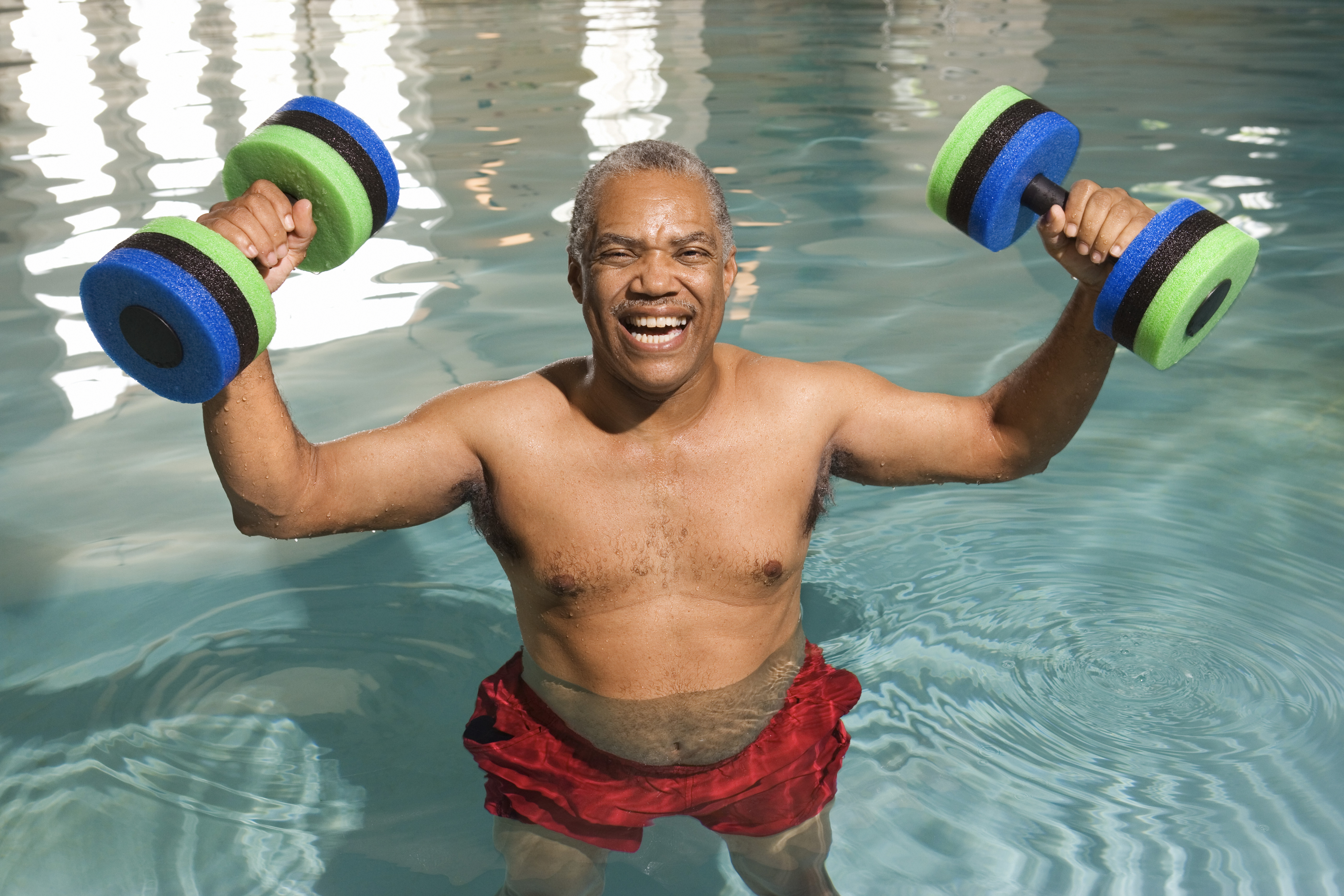Aquatic Therapy
Aquatic therapy offers an alternative environment for therapeutic exercise. If you have tried traditional physical therapy or have restrictions on your physical therapy program, aquatic therapy may be the perfect solution for your physical therapy needs. Patients with orthopedic and arthritic conditions can stretch and strengthen in an impact-reduced environment. If you have a restricted weight-bearing status after surgery, aquatic therapy may also be ideal for you. The buoyancy of water reduces the stress of gravity so you can exercise in water, even if you have partial weight-bearing status.
3 Unique Features of Aquatic Therapy:
- Buoyancy: Water decreases the gravity placed on weak limbs unable to bear much weight. This makes movement easier to move, with less stress on joints, muscles, and bones.
- Water Pressure: Water surrounds the body and helps blood circulation in the legs. This can also reduce swelling in the ankles and feet. As swelling decreases, range of motion can increase.
- Resistance: Water provides a full-body workout to strengthen every working muscle. Muscle toning, weight reduction, and sensory awareness all improve with aquatic therapy.
Benefits of Aquatic Therapy:
Increased Circulation: The high specific heat of water reduces inflammation and stimulates circulation. Water pressure increases lymphatic fluid and blood return to reduce swelling in injured areas.
Assists in an Earlier Return to Sports and Other Activities: You can begin aquatic therapy as soon as your doctor permits. The impact reduced environment may prevent you from forming bad habits associated with painful weight-bearing.
Diagnoses That Can Benefit from Aquatic Therapy
- Arthritis (RA & OA)
- Balance deficits
- Cardiac diseases
- Circulatory problems
- Fibromyalgia
- Joint replacement
- Limited range of motion
- Neurological MS, stroke, Parkinson’s, ALS
- Obesity
- Orthopedic injuries/trauma
- Osteoporosis
- Perceptual/spatial problems
- Poor motor coordination
- Respiratory problems
- Sensory disorders
- Spasticity
- Weakness


